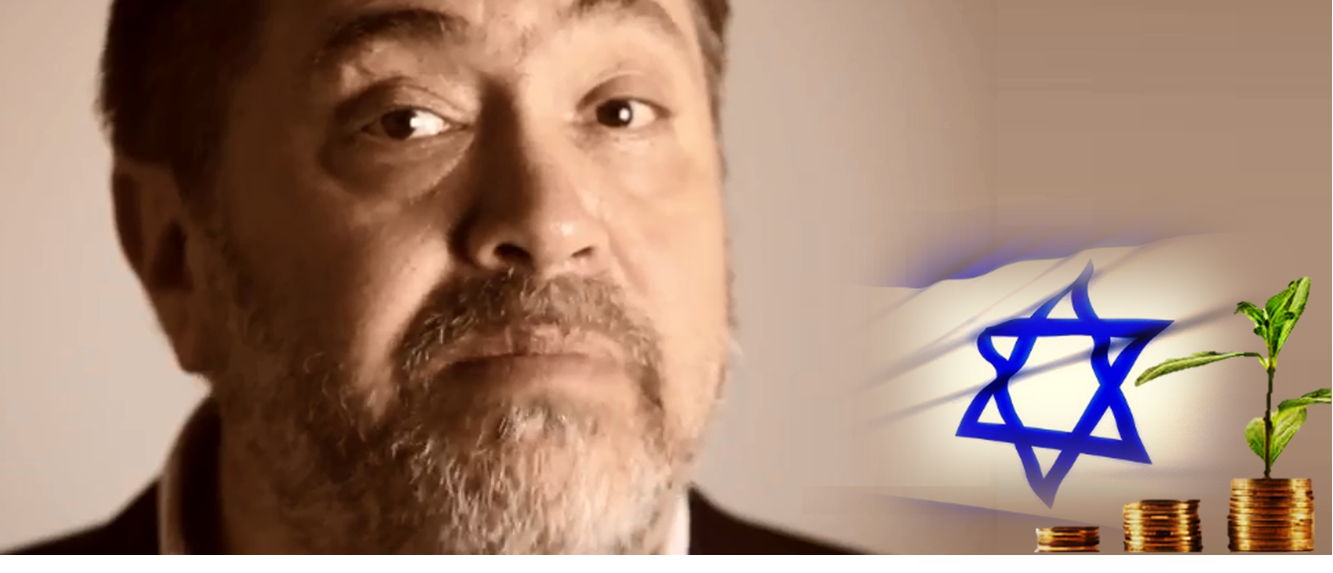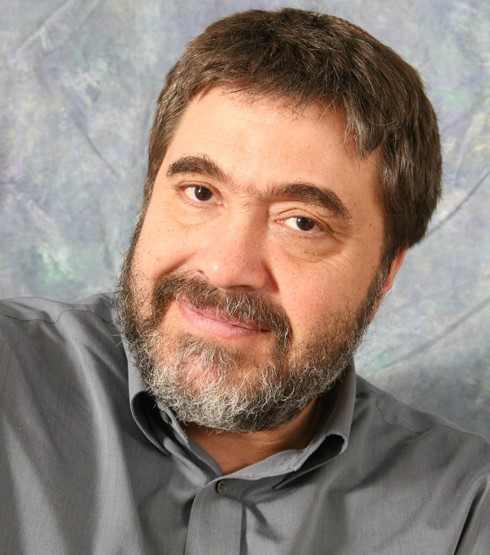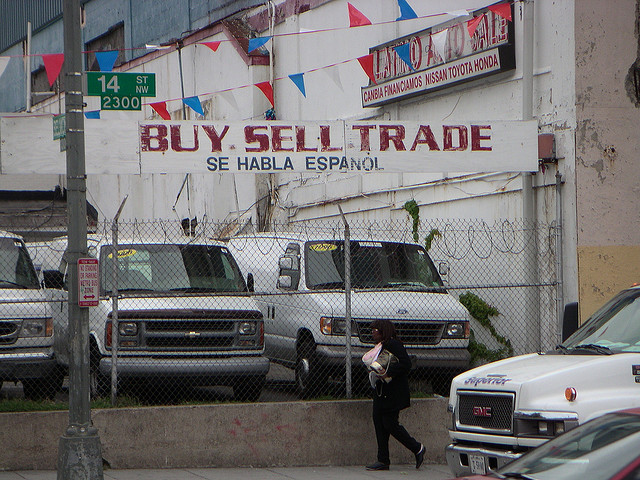How a secular American student at Berkeley became an Orthodox Jewish Israeli businessman in Jerusalem: The story of Jon Medved, named as “the American citizen who has the greatest influence on the Israeli economy” ─ though he defines himself as exclusively Israeli.
Source: This blog post includes translated excerpts of the original article by Ayelet Vardi which was featured in Israel’s leading daily newspaper, Yedioth Ahronoth: The Story of Medved (Hebrew)
“My grandfather came to the US from the Ukraine in 1910,” recalls Jon Medved, CEO and Founder of the VC-equity crowdfunding investment company OurCrowd, in an interview at his Jerusalem office. His speech is a natural mix of English and Hebrew, with some Spanish colloquialisms thrown in. Dressed in an orange and red Hawaiian shirt ─ and with a style that conveys complete calm and confidence ─ Medved breaks every known stereotype about Orthodox Jewish American men who live in Jerusalem.
“He was a barrel maker. I know that sounds like the work of an ordinary laborer, but the work of a barrel maker is not simple at all. You needed to design the barrel, its angles; it is a work of art. He lived in Philadelphia and for four years, he saved up money to bring his wife and five children from the Ukraine to the US. My grandmother started the journey and headed out to cross the Hungarian border, which she reached on the eve of the Jewish fast day of Tisha B’Av. She intended to fast on the Ukranian side, and then to cross the border the next day. But World War I broke out on Tisha B’Av. According to Jewish tradition, all great calamities have taken place on Tisha B’Av. My grandmother could not cross the border and the next day, she retraced her steps to the shtetl, deep in the Ukraine.
“After the war came famine, which was followed by a civil war. In the end, from the day my grandfather reached Philadelphia, until the day that his wife joined him, fourteen years passed ─ during which time four of their five children died. Two weeks after my grandmother reached the US, in 1924, she started to feel terrible and was very nauseous. She was almost 50. With the little money that they had, they went to the doctor who diagnosed that she had a growth. Shocked by the news, they decided to get the advice of a second doctor. The ‘growth,’ as it turned out, was actually a baby. This baby grew up to become my father,” he shares, with obvious enjoyment.
“My parents met at the Shomer Hatza’ir youth movement soon after World War II, and they decided to move to Israel. They joined a group that established the kibbutz in Israel that is situated at the highest altitude ─ Kibbutz Sasa. But my father desperately wanted to study physics. Soon after the establishment of the kibbutz, he asked the rest of the group for permission to study at the Hebrew University. They laughed. They told him that first, he would need to work for about ten years in the cow shed. This response didn’t suit him, and my parents decided to return to the US, to the West Coast.
“I spent my childhood in a seaside community in California called La Jolla. Later, we moved to Los Angeles, following my father who had become a nuclear scientist and entrepreneur. At the time, he was involved in establishing his first startup, which he later sold to Xerox. I grew up in a very liberal environment ─ very Californian. There was no Jewish element to it. We did not keep the Sabbath or eat kosher food. We did celebrate the festivals, but at the Passover Seder, for example, it was not unusual for some of the guests to leave for a night swim in the pool,” he mentions with a smile. “The neighborhood I grew up in was Jewish, but nobody did anything with it. I did not know much about Judaism and I was not curious about it. My parents tried to send me to a Jewish school, but I was taken out of the school after a short period of time.”
Nothing mentioned until this point in the life story of Jon Medved, born in 1955, provides any hint that one day, he would be considered by the New York Times to be “one of the ten Americans who has the greatest influence on the Israeli economy;” and that when this day would come, Medved would no longer define himself as a secular Jewish American but as an Orthodox Jewish Israeli.
First Visit to Jerusalem
Medved was a political activist in California of the 1970s, protesting the Vietnam War. By the age of fourteen, he had already joined the Democratic Party. Later, he became a student of history at the University of California, Berkeley.
“I remember that in my first week at Berkeley, I saw a poster of Bob Dylan,” he recalls. “I said to myself, ‘Great, Dylan is coming here, I need to get tickets to the show.’ I approached the students standing by a table next to the poster and I asked them, ‘When’s Dylan performing?’ They looked at me in shock and responded, ‘It’s not Dylan, idiot. It’s Ber Borochov, founder of the Labor Zionist movement, and we are the Radical Jewish Union.’ I had no clue who the man was and what he had done and I had no Jewish or radical identity, which was what I assumed they were looking for.”
He started to develop this identity during his summer vacation, which he’d planned on spending in Spain, though he ended up in Jerusalem. “At the end of my first year of university, I phoned my parents and asked them to help me pay for my summer vacation. I wanted to go to Spain, where most of my friends planned to spend the summer months. My parents had plans of their own: ‘The only place we’ll pay for you to go is Jerusalem,’ they said. I didn’t know many people who had traveled to Jerusalem, so I agreed.”
What did you know about Israel until that point?
“Nothing. Zero information. I started reading everything I could find about Israel. Among other things, I read The Source, an excellent book written by James Michener, and the first Jewish book I’d encountered that was written by someone who was not Jewish. I came to Jerusalem in 1973, the summer before the Yom Kippur War. I had such a good time in Jerusalem that I wanted to extend my trip. I called my parents who responded with no hesitation whatsoever, ‘Get yourself back here, and fast!’ I had no choice but to go back.”
A week after his return to the West Coast, the Yom Kippur War broke out. The war could be felt even in Berkeley. “I remember the Muslim student organizations and the massive demonstrations with slogans that read, ‘Death to Israel and Death to the Jews.’ I remember their roars of hatred, while they completely ignored the fact that Israel did not start this cursed war. I immediately walked over to the [Jewish campus organization] Hillel and asked, ‘What do we do? How do we respond?’ They said they didn’t know, and asked me what I’d suggest. Since I had come from a relatively rich political background, I became very involved right away. First, we organized a counter-protest and we put an advertisement in the newspaper. Within a short time, I became one of the most active students in the Zionist movement on campus. We fought the propaganda and I felt that I was fighting for my home, or my correctly for the State of Israel. The attacks on Israel felt very personal after my trip to Jerusalem.”
Do you think that if you hadn’t visited Israel that summer, your life would still look the same today?
“Unequivocally – no. After the war, which from my perspective had taken place both in Israel and on campus, I was hooked. I returned to Israel in the summer of 1974. This time, I signed up for a Hebrew-language Ulpan class, and I started to speak in Hebrew to my Jerusalemite relatives. At this point, it was already clear to me that I would become Israeli.”
A Jewish Agency Emissary
A short while afterward, Medved received an offer from the Jewish Agency. His adventurous personality combined with a sense of mission that he developed at this age, led him to say, “Yes.”
“They said to me, ‘Listen, we see that you are very active and we have a job offer for you: We will give you an old car and a movie projector, that is also not particularly new, and a few propaganda films, and you will travel to different universities and speak to students.’ My parents thought I’d lost my mind, because it meant that I had to take a break from my studies. I saw this as an adventure. I met amazing people. I learned how to sell, to organize. I learned what works, how to take leadership and how to connect different groups of people. Many of the skills that I used later, in the world of entrepreneurship, I gained in that first job.”
After six months on the road, where he was busy with marketing the State of Israel, Medved returned to his studies. Two semesters later he decided to leave his studies again, though not to leave university campuses.
“I got another call from the people at the Jewish Agency. This time, they wanted me to manage the work in universities throughout the entire US. ‘We will send you a salary,’ they said to me. ‘You’ll have people working under you. We’ll give you a budget.’ The work was in New York in 1977, at the end of the disco age,” he points out. “I lived at 93 Lexington, and it was an unbelievable experience. In that job, I learned what it means to raise funds.” After two years of working with the students, Medved went back to Berkeley to try and finish his degree, again without success.
“It was 1980, and I told myself that I was making Aliyah no later than the end of that year. I tried to finish the last two courses of my degree, which (absurdly) were classes in Hebrew, but I did not have enough time. Ever since then, I have lived with the thought that I did not have an academic degree. I told myself that Bill Gates also didn’t have an academic degree, and neither did Steve Jobs, and then Zuckerberg left his studies without a degree, as well… And then one fine day, one of the companies that I established went public. Before a company goes public, there is the process of ‘fact checking’ the resumes of everyone who works in the company. One day, I received a call from the company that was handling this, and they said to me, ‘Listen, we have a problem.’ I asked, ‘With whom?’ They answered, ‘With you. Why didn’t you mention your degree from Berkeley?’ I answered, ‘Because I don’t have one. I didn’t finish it.’ They said to me, ‘Sir, you have a degree.’ I immediately called Berkeley and, to my amazement, I discovered that I did indeed finish the degree in 1980. It’s not clear to me what happened there, but the bottom line is that the degree waited for me all those years and what’s even more astounding was that it was awarded to me with honors! My whole life I’d lived with this thought that I didn’t have an academic degree.”
The diploma itself, for those who are interested, hangs on the wall of his grandson’s playroom.
“When I arrived in Israel, I started working for the Jewish Agency. I thought I would go into politics or become an educator. However, after a year, my father came to visit to see how I was doing. He had opened a new company in the field of fiber optics ─ something that, at the time, no one had heard of. He said to me, ‘Come with me to a meeting at Rafael, in Haifa. We’ll travel there together, and you can help me with the Hebrew ─ and on the way, we’ll have fun and spend some time together.’ We came to the meeting. At the time, there weren’t any iPhones to play with, so I found myself sitting in a corner and dying of boredom. At the end of the meeting, one of the engineers turned to me and said to me in Hebrew, ‘Nu, young Medved, what are you doing here in Israel?’ I told him that I give lectures about Zionism and things like that. He said to me, ‘Really?’ I said to him, ‘Really.’ He said to me, ‘A total waste. You think that’s Zionism? What your Dad does is Zionism. Help him build a factory for the fiber optics that the State needs, create new jobs, become an entrepreneur!’ On the way back to Jerusalem I asked my father about the nature of his work, since my background was in history and the humanities. That was the day that we decided to begin working together.
“At about the same time I met my future wife, Jane. I remember that we met and fell in love, and that I said to her right away, ‘Listen, if I am raising this amount of money, it is possible that we may need to move back to the US for at least a year or more. We’ll make money and come back…’ And that’s almost what happened. In 1984, I raised a sum of $600,000 from ECI Telecom. Meir Laserman, who was in charge of ECI at the time, asked me to move to the US for a few years. So we moved to Santa Monica. There, we established a company called MERET, right next to a factory for recycling garbage that attracted a sea of birds, which were tremendously entertaining to the groups that visited us from Japan. This was the beginning of my journey in the world of hi-tech ─ pure nepotism!” he emphasizes with unapologetic humor.
Apropos of nepotism, wasn’t it hard to work with your family?
“There are a huge number of families in the world who work together. It’s true, it is also difficult, but on the other hand you have support and you are able to fail. My father, Dr. David Medved, was an exceptional character. His life was inspirational and, therefore, I was lucky to spend time with him and learn so much. I learned a huge amount from him.”
What is the most important thing that you learned from him?
“Not to take life too seriously. He took life seriously, but he had his limits. For example, every day at three o’clock he would go out to surf or to swim. It did not matter what was going on in the rest of the world. The office was located three minutes from the Santa Monica beach, and no matter what we were talking about at that moment, he would cut me off and say to me seriously, “Son, I got to go to the beach now.”
Israeli Capital
Eight years after Jon and his father established MERET, they sold it to the oil company Amoco.
“From the beginning, I understood that that area of fiber optics was a very hot topic,” he explains. “Maybe I didn’t understand exactly how hot it was, and if I’d been more experienced, I would have priced the company differently, or waited a few years before selling it. However, Jane and I had already been in the US for six years, which was five years longer than what I’d promised her. We’d had three children, and we had become much closer to Judaism. All that she wanted ─ and all that I wanted ─ was to go back to Israel.”
When he returned to Israel, Jon established a software company. Afterward, in the 1990s, he co-founded ─ together with Neil Cohen ─ a venture capital fund called Israel Seed Partners, one of the more significant funds in the Israeli market.
“It was 1994. All of a sudden, everyone was establishing venture capital funds, and we did, too, in the basement of my house in Jerusalem.” Within a short time, additional friends joined the fund.
You must have been a “strange bird” among the other VCs, in Tel Aviv and Herzliya.
“Our fund was always considered to be a fund of Jerusalemites, Americans, religious people, English speakers ─ definitely a “strange bird” in the field. We made very good deals because we had very good connections in the US. We were among the first funds that was Israeli but “Anglo,” and we did our work fearlessly for eleven years. By the end of this time period, we had raised and invested almost $260 million.”
In 2005, the partners of the fund went their own separate ways. Medved established a new startup called Vringo which went public in 2007 and was awarded the title of “one of the most improbable IPOs of all times” by the prestigious Wall Street Journal.
Two years ago, Medved started a new entrepreneurial adventure, which he called OurCrowd, a platform that allows the general public to invest relatively small sums ($10,000 and more) in local startups.
On the company’s site, you can find information about different investment opportunities in startups, reports about the companies and different promotions. This information is intended for private investors, individuals with financial capabilities, from whom a startup at the beginning of its development can raise a significant sum.
Why do you provide all of this information for free?
“Since the 1990s, I found myself becoming a sort of unofficial spokesperson for Israeli hi-tech, at hi-tech conferences around the world. I started giving lectures about Israel and technology. I enjoyed it. Along the way, I met some interesting people like Saul Singer and Dan Senor, who eventually wrote the book Start-Up Nation and became personal friends. When I left Vringo in 2010, I started to make even more appearances at these conferences. Everywhere I spoke, people would come up to me at the end of the lecture with business cards and tell me that they are interested in investing in Israeli hi-tech. At the time, I still didn’t have anything so I recommended that they contact people in the field like Chemi Peres, but they weren’t interested in investing large sums. In parallel, I noticed that the area of crowdsourcing was quickly gaining momentum ─ not in the world of hi-tech but in many other areas ─ and I started to develop an action plan that would allow people to have easier access in this area.”
OurCrowd was launched in February, 2013. (updated as of June 2017) To date, it is considered the largest crowdsourcing company in the world, with more than 20,000 investors from one hundred and twelve countries. The company has thus far invested close to $440 million in one hundred and twenty Israeli and global startups.
“TechCrunch reported that we will invest close to $100 million in Israeli hi-tech next year. That does not sound like a lot, but when you think about a standard investment fund of $200 million, which invests no more than 15-20% of the fund annually, you end up with a fund of about a billion dollars. This is something that does not exist today in the Israeli market.”
How much do you believe in Israeli hi-tech?
“A lot. I believe it is an area that is improving with time: The quality of the companies is improving, the exits are more profitable. In the last eighteen months, there were eight exits of close to a billion dollars. Today, when I speak to an audience of Jewish Federations or AIPAC members, most of the people in the room do not invest in Israeli hi-tech. I hope that our platform will change that, and that people will understand that if they once contributed to the State by planting trees and buying Israeli bonds, today it is possible to contribute to the State by investing in the hi-tech industry.”
Toward the end of our conversation. I raise an issue that interests many people: What is there about the Israeli mentality that causes the waves of initiative and innovation that have made Israel into the so-called “Start-Up Nation”?
“It’s not just an Israeli story,” Medved is quick to clarify, “It is a Jewish story. About a quarter of the list published by Forbes Magazine, of the one hundred richest people in the US, are Jewish. You can find that same percentage in England, Australia and France ─ and, it turns out, even in Russia. Is it a conspiracy? Do we have exceptional DNA? What is this? We represent about 0.2% of the world population, and it is an understatement to say that this is highly disproportionate representation. In my opinion, it is connected to who we are in terms of our culture and our approach to risk. Most people avoid risk, while Jews and Israel live constantly in the shadow of existential danger. For us, to think about establishing a company or writing a play that might be a failure is not a big freaking deal,” he laughs, then reverts from English back to Hebrew. “There are worse things. For me, to be a Jew means to be constantly involved in doing, and when you look at Israel you see all of these things. Look at Shimon Peres, for example, a ninety year old man who recently posted a movie clip in which he says that he’s looking for work. It is brilliant! My father, who worked until the week he died, wrote a book before he died in which he described ─ among other things ─ the uniqueness of Judaism, the uniqueness of a nation that maintains its past as part of its consciousness, a tradition that is 4,000 years old. This rooted perspective is very valuable to Jews as a nation.”
Forever Young
Medved will soon turn sixty, and he can say that he has lived almost half of his life in Israel.
Do you feel Israeli or American?
“Entirely Israeli,” he says without hesitation. “I really love America. The fate of the world is dependent on America, which stands for everything that is right: For freedom, capitalism, democracy, excellence… If America were to fail, the world would face a very dark future. However, I feel Israeli in every bone in my body.”
What do you understand today that you did not understand in the past?
“That life is very, very short. I look toward my next thirty years and I hope that I will be able to dance at many of my grandchildren’s weddings, to drink a lot of good whiskey with friends on weekends, to sit on the beach and fish, and simultaneously to find investors for new initiatives. I can’t believe that I am about to turn sixty. In my mind, I am forever twenty-two years old. Even when I was fourteen, it felt like I was twenty-two. The mentality of being “forever young” is a trait that is important, necessary and a source of strength for us as Jews ─ whether one is talking about King David and Shimon Peres, or about my father of blessed memory, who never forget at three o’clock in the afternoon to go out to the beach to surf or swim.







![China and Israel tech ties continue to strengthen [OurCrowd Newsletter]](https://blog.ourcrowd.net/wp-content/uploads/2016/11/OurCrowd-Newsletter-banner.png)



